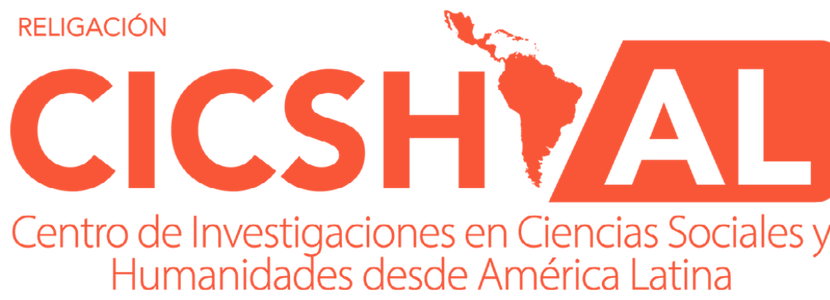Eating disorders. Bioethics and society
Keywords:
bioethics; eating disorders; treatment; health personnel.Synopsis
The study of Eating Disorders has gained importance due to their high prevalence in the population; conditions such as bulimia nervosa, anorexia nervosa and binge eating disorder affect physical and mental health. These disorders involve cognitive distortions about weight and figure, as well as eating behavior. Symptomatology affects the person's state of health, emotional component, problem-solving capacity, interpersonal relationships and academic or work absenteeism.
Chapters
-
Bioethical implications for the establishment of treatment in eating disorders.
-
Ethical dilemmas in the pain of people with eating disorders
-
Eating disorders. Approach from behavioral biology to neurogenetics
-
Eating disorders and absence of menstruation
-
Epigenetics involved in the development of eating disorders: an approach to anorexia nervosa
-
Bioethics in the involuntary commitment and treatment of patients with eating disorders: anorexia nervosa.
-
The impact of society as a predisposing factor of Bulimia and its Bioethical implication
-
The Weight of Eating: Ethics in the Treatment of Bulimia
Downloads
References
Arnold, S., Correll, C. U., & Jaite, C. (2023). Frequency and correlates of lifetime suicidal ideation and suicide attempts among consecutively hospitalized youth with anorexia nervosa and bulimia nervosa: results from a retrospective chart review. Borderline Personality Disorder and Emotion Dysregulation, 10(1).
Benjet, C., Méndez, E., Borges, G., & Medina-Mora, M. E. (2012). Epidemiología de los trastornos de la conducta alimentaria en adolescentes Epidemiología de los trastornos de la conducta alimentaria en una muestra representativa de adolescentes. Salud Mental, 35(6).
Carlos, J. (2010). Los principios de la bioética y el surgimiento de una bioética intercultural. Veritas, 22, 121–157. http://www.uv.es/gibuv
Bennato, M. (2018). Los principios bioéticos en el proceso de toma de decisiones médicas. Nordeste, 12
Bright, B., & Henrie-Barrus, T. (2020). Anorexia Nervosa: An Addiction Changing Addictive Thinking. University of Utah
Gabler, G., Olguín, P., & Rodríguez Alejandra. (2017). Complicaciones médicas de los trastornos de la conducta alimentaria medical. Revista Médica Clínica Las Condes, 28(69), 893-90
Gómez-Candela, C., Palma Milla, S., Miján-de-la-torre, A., Rodríguez Ortega, P., Matía Martín, P., Loria Kohen, V., Campos Del Portillo, R., Virgili Casas, M. N., Martínez Olmos, M., Mories Álvarez, M. T., Castro Alija, M. J., & Martín-Palmero, Á. (2018). Consenso sobre la evaluación y el tratamiento nutricional de los trastornos de la conducta alimentaria: Anorexia nerviosa, bulimia nerviosa, trastorno por atracón y otros. Nutrición Hospitalaria, 35(2), 489–494. https://doi.org/10.20960/nh.1819
Hay, P., & Morris, J. (2016). Manual de Salud Mental Infantil y Adolescente de la IACAPAP.
Hilbert, A., Hoek, H. W., & Schmidt, R. (2017). Evidence-based clinical guidelines for eating disorders: International comparison. Current Opinion in Psychiatry, 30(6), 423-437. https://doi.org/10.1097/YCO.0000000000000360
Le Grange, D., Hughes, E. K., Court, A., Yeo, M., Crosby, R. D., & Sawyer, S. M. (2016). Randomized Clinical Trial of Parent-Focused Treatment and Family-Based Treatment for Adolescent Anorexia Nervosa. Journal of the American Academy of Child and Adolescent Psychiatry, 55(8), 683–692. https://doi.org/10.1016/j.jaac.2016.05.007
Paolacci, S., Kiani, A. K., Manara, E., Beccari, T., Ceccarini, M. R., Stuppia, L., Chiurazzi, P., Dalla Ragione, L., & Bertelli, M. (2020). Genetic contributions to the etiology of anorexia nervosa: New perspectives in molecular diagnosis and treatment. Molecular Genetics and Genomic Medicine, 8(7). https://doi.org/10.1002/mgg3.1244
Pinto, Miguel E., & Manrique, Helard A. (2010). Retiro de sibutramina por riesgo de enfermedad cardiovascular. Revista Peruana de Medicina Experimental y Salud Publica, 27(3), 489-490
Radden, J. H. (2021). Food refusal, anorexia and soft paternalism: What’s at stake? Philosophy, Psychiatry and Psychology, 28(2), 141–150. https://doi.org/10.1353/ppp.2021.0022
Secker, B. (1999). The Appearance of Kant’s Deontology in Contemporary Kantianism: Concepts of Patient Autonomy in Bioethics. Journal of Medicine and Philosophy, 24(1).
Secretaría de Salud. (2008). Trastornos de la ingestión de alimentos anorexia nerviosa y bulimia nerviosa. Prevención y diagnóstico oportuno en el primer nivel de atención. Guía de práctica clínica. CENETEC.
Szasz, T. S. (1960). The myth of mental illness. American Pyschologist, 15, 115-118
Tuomisto, T., Hetherington, M. M., Morris, M. F., Tuomisto, M. T., Turjanmaa, V., & Lappalainen, R. (1999). Psychological and physiological characteristics of sweet food “addiction”. The International journal of eating disorders, 25(2), 169–175.
Vázquez Parra, J. C., & Martell Espericueta, C. M. (2020). El respeto de la autonomía como elemento fundamental en el tratamiento ético de los trastornos de la conducta alimentaria. Revista Latinoamericana de Bioética, 20(1), 93–105. https://doi.org/10.18359/rlbi.4369







